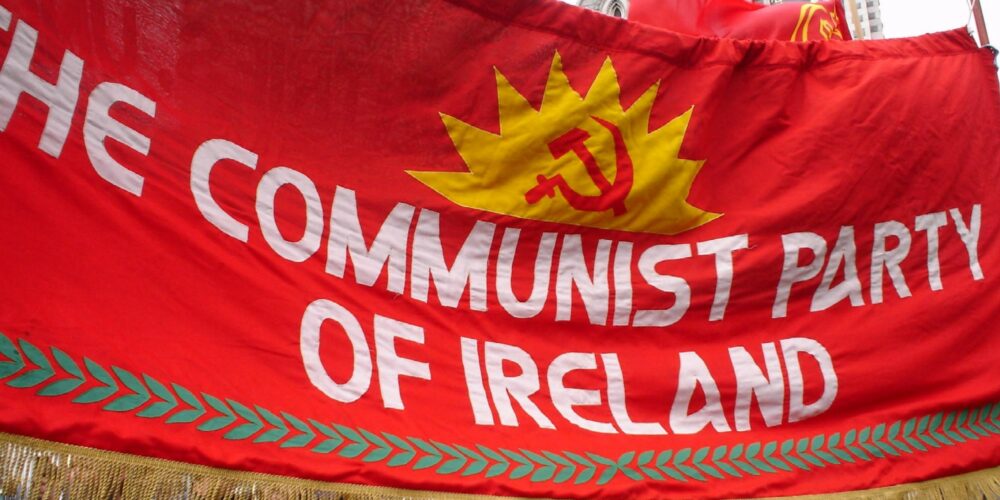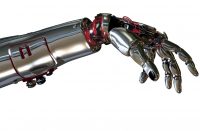In the November 2020 issue the article headed “From A to B, and everything in between” outlined the CPI’s transformative strategy. The present article is a short follow-up based on discussions that have come up since the article was published, which I hope will further illuminate the thinking and ideas within the CPI.
What separates the CPI from every other political party or movement? Quite simply, the central role of political class-consciousness in our analysis and understanding of our material world. It is an awareness of your place in this world, of your social position; an awareness of the historical construction of class societies, of how and why classes are formed—an awareness of class struggle.
Class-consciousness is one of our strongest weapons against the class enemy, because once you develop it you no longer remain hostage to ignorance and to spontaneity, the antithesis of political class-consciousness.
Ignorance and spontaneity mean knowing that there is so much injustice, inequality, imbalance in the world but, by either not knowing or not wanting to know, or not being clear in what to do about it, bar the protection of the self and resorting to charity in acts of solidarity, the working class is kept captive within the capitalist mode of production, which guarantees the continued exploitation and destruction of the planet and all living and working beings. It is shrouded in subjectivity and lacks a clear and objective class analysis of the prevailing and coming crises. As Lenin stated:
“The spontaneous development of the working-class movement leads to its subordination to bourgeois ideology; for the spontaneous working-class movement is trade-unionism, and trade unionism means the ideological enslavement of the workers by the bourgeoisie. Hence, our task, the task of Social-Democracy [i.e. communists], is to combat spontaneity, to divert the working-class movement from this spontaneous, trade-unionist striving to come under the wing of the bourgeoisie, and to bring it under the wing of revolutionary Social Democracy.”*
As social beings, having a collective understanding of class society helps develop the bonds of class solidarity and unity. There is no other method of defeating the class enemy. It must be forged by the conscious efforts of communists and the most advanced sections of the working class, injecting the theory of Marxism-Leninism into the wider workers’ movement and working-class forces, to develop class-consciousness, struggle, and solidarity, with a concrete analysis of capitalism and imperialism, a vision and framework for a different mode of production—of socialism.
The nature, role and development of the communist party must therefore be front and centre in developing and building that movement.
Reformism and reformist demands, as a tendency within the workers’ movement, lack clarity at best and at worst are ignorant of political class-consciousness. The demands may be the popular demands of the people who are defending their interests, of the workers who are pitted in a class war they are often oblivious of; but these demands are the protection and defence of the self, whether as an individual, a company, an industry, or a nation, and have their merit within the realm of self-preservation.
But for a communist party, or a party or movement that represents the working class, to concentrate their work, their resources, their time on reforms of the system without going beyond the reforms is to avoid the class struggle and to engage only in bourgeois politics. What distinctive role do we as communists and as a communist party have if we fail to advance the position of the working class? The house is already full of political opportunism and reformism.
If we are aware of our theory and our place within our class we have to make decisions to intervene in the class struggle where strategically this strengthens the hand of labour and the people over capital and its benefactors, where there is popular support for change, by shifting the emphasis of demands from reforms to transformations.
It’s not a subjective factor—whether we think that demands, campaigns or policies are good or bad—that would merit the time and resources, as struggles and demands are in constant flux and on ever-changing battlegrounds: it is whether we can objectively transform any particular demands, campaigns or policies that develop class-consciousness, in other words that expose the class nature of the struggle within the capitalist mode of production, bringing the conflict between capital and labour to the fore, that weaken the grip of imperialism on our country and people but also offers an opportunity for developing and deepening class solidarity.
That should be our strategic objective, and that is what is intended when we adopt a transformative strategy.
There are many detractors of this type of strategy, labelling it either “revisionist” or “ultra-leftist,” yet there has been little if any actual critique of a serious nature of the transformative strategy backed up by an alternative formulation that would imbue the working class and trade union movement with a political class-consciousness in a planned, directed and organised way. Until such a critique or encompassing counter-strategy is presented and logically explained and analysed, the detractors, especially those on the left, can sling all the fallacious arguments they want, but it will not develop and deepen political class-consciousness among those who they insist they represent but will serve only to enslave workers to the pervasive capitalist ideology.
An important point to note is that a transformative line does not mean ignoring or stifling the reformist demands of the people, or indeed those of trade unions: it is for attempting to shift the focus and line of attack of reforms, from protecting particular interests or insular reforms within the system to protecting the particular interest while also challenging the validity and legitimacy of the capitalist system itself as a mode of production and challenging the ruling class, by bringing forward an alternative to the insular demand, i.e. a transformative demand.
Trade unions by their nature are there to protect their own members’ interests and, by and large, reflect the collective political class-consciousness of those they represent. They have a distinct function in the class struggle, being in the front line of the industrial battlefield, engaging in struggle against capitalist employers and the bourgeois state and our gombeen political class but are limited by the restraints of bourgeois ideology, laws and practices that are pervasive within society.
The role of a communist party is different from that of trade unions and trade union work, and this should be recognised by members of both. However, it is not an “either-or” scenario. The interjection of political class-consciousness into the trade union movement can be symbiotic for active members in both, and so the campaigns and demands of trade unions will reflect the developments in political class-consciousness.
Importantly, the objectivity of a transformative strategy can only be infused by the conscious work of comrades active and engaged within the trade union movement as well as the myriad campaigns, activities and forums that the party is mobilised on; otherwise we are back to the scenario of relying on the “spontaneous development of the working-class movement.”
Seeking the transformative demand is not a dogmatic formulation of listing “good” and “bad” (subjective) reforms that at any particular time are randomly picked out but is for initiating a flexible method of work, to act as a guide in ensuring that whatever the particular struggle, demand, or reform—working from home, the environmental crisis, privatisation of water, the housing crisis, health crisis, partition, etc.—it is actively and consciously developed and linked to the general intensification of class struggle. This can only be achieved by the targeted and planned direct action of a party being conscious of the means of actively developing, implementing and assessing a transformative strategy.
It is this that sets the CPI apart from trade unions, and from any other party for that matter, and why it is vital that the party remains steadfast in the midst of attacks against the organisation. The role of the party is not only to stretch the horizon of our class by advancing transformative and revolutionary demands, building a movement for socialism, but it must train and develop all members joining our ranks into a well-disciplined but vibrant party, collectively willing and able to represent and advance the position of our class in any and every facet of the class struggle.
*V. I. Lenin, What Is to Be Done? Burning Questions of Our Movement (1902) (tinyurl.com/kkzm6bxs)






